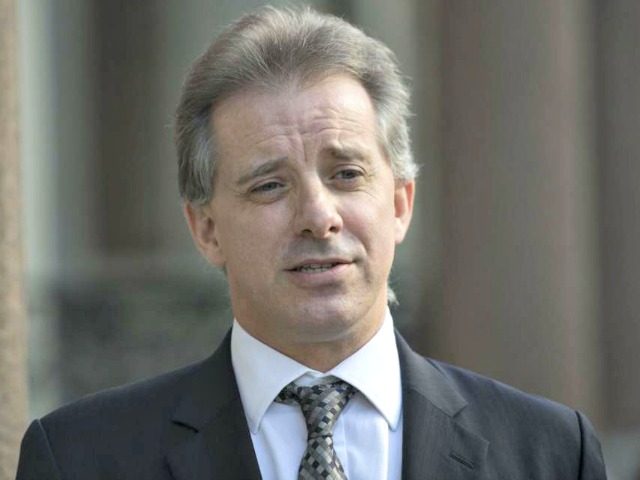Attorney General William Barr discussed the Department of Justice’s investigation into the origins of the Trump-Russia probe during an interview broadcast on Friday. He called the dossier compiled by former British intelligence agent Christopher Steele “opposition research” with “clear mistakes.”
“It’s a very unusual situation to have opposition research like that, especially one that on its face had a number of clear mistakes and a somewhat jejune analysis,” Barr told Fox News Channel anchor Bill Hemmer. “And to use that to conduct counterintelligence against an American political campaign is a strange–would be strange development.”
The FBI used the Steele dossier to obtain a Foreign Intelligence Surveillance Act (FISA) warrant to spy on former Trump campaign foreign policy adviser Carter Page. The FBI did not disclose to the FISA court explicitly that Hillary Clinton’s 2016 campaign or the Democrat National Committee funded the dossier, despite indicating that the dossier was compiled as opposition research.
Barr told Hemmer that his department is examining if “government officials abused their power and put their thumb on the scale” at the start of the FBI’s counterintelligence operation.
“I’ve been trying to get answers to the questions, and I’ve found that a lot of the answers have been inadequate, and some of the explanations I’ve gotten don’t hang together. In a sense, I have more questions today than when I first started,” the attorney general said.
“People have to find out what the government was doing during that period, if we’re worried about foreign influence, for the very same reason we should be worried about whether government officials abuse their power and put their thumb on the scale,” he later added. “I’m not saying that happened, but it’s something we have to look at.”
Barr is currently in El Salvador, where he is meeting with officials from the DOJ, El Salvador, Guatemala, and Honduras to address the crisis at the U.S.-Mexico border and ongoing drug and human trafficking.

COMMENTS
Please let us know if you're having issues with commenting.